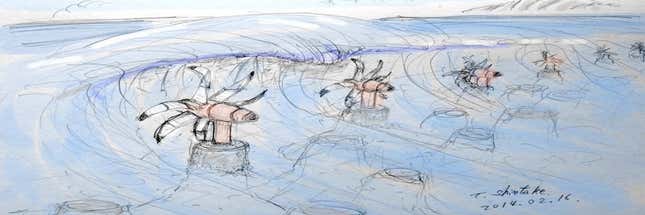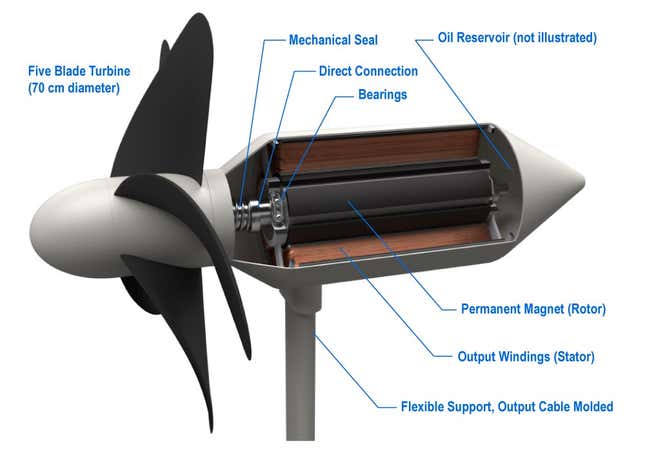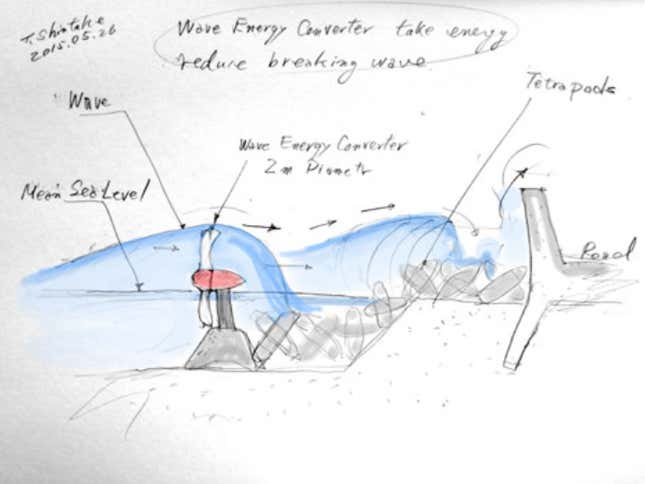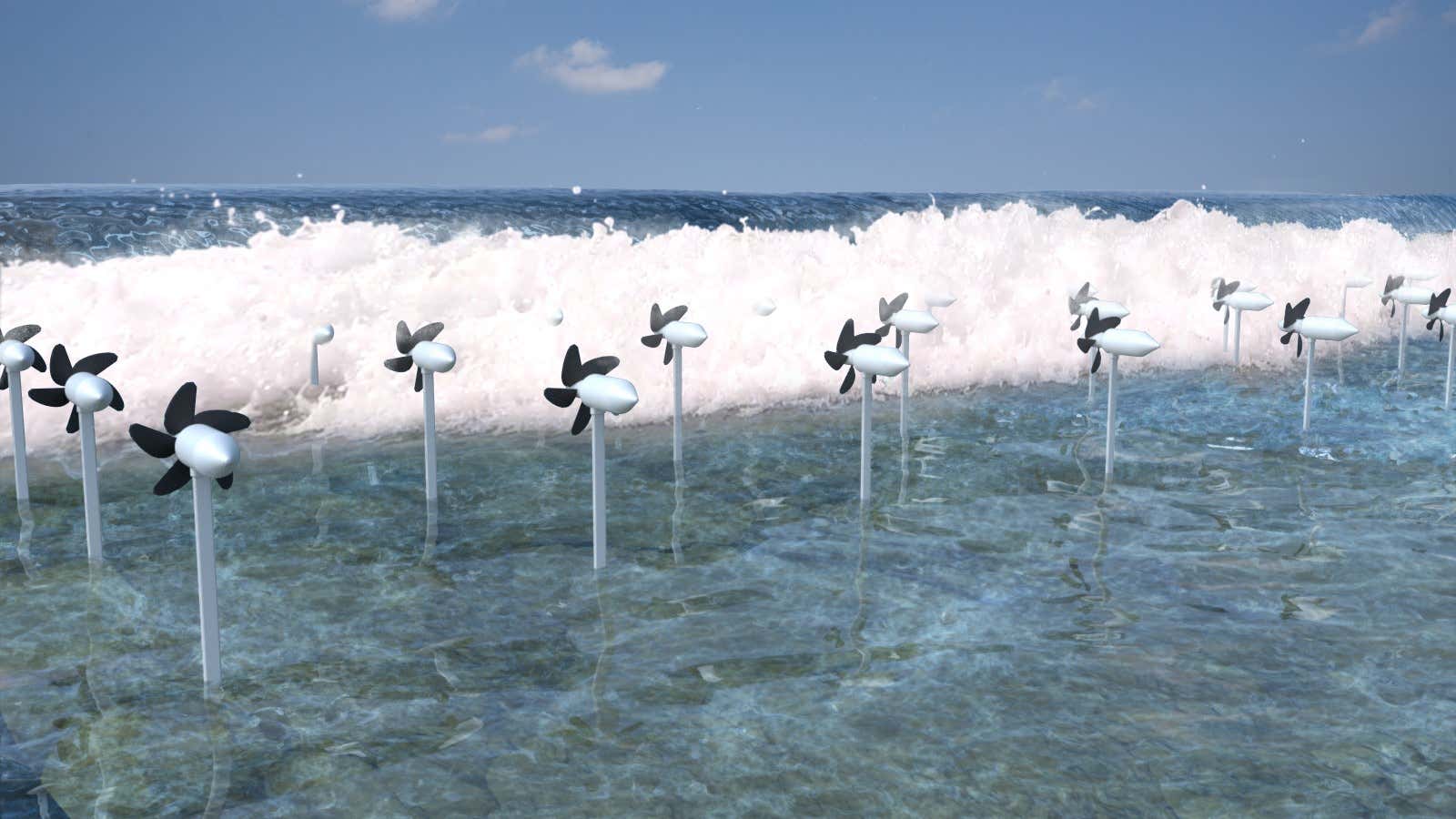A sustainable future powered by the sea could soon be a reality.
Researchers at the Okinawa Institute of Science and Technology in Japan have been generating electricity through currents, using special underwater turbines. On Sept. 20, they announced that their project—dubbed Sea Horse—was a success and ready for commercial application.

The implications are “huge,” according to lead researcher professor Tsumoru Shintake. “Using just 1% of the seashore of mainland Japan can [generate] about 10 gigawatts [of energy], which is equivalent to 10 nuclear power plants,” he said in a press release for the Okinawa Institute, which is a graduate school on Okinawa, an island in the East China Sea.
Plus, wave energy has the added benefits of being cheap and clean.
Since 2013, the researchers have been strategically placing specially-designed turbines along the shoreline to convert the kinetic energy of the north-flowing Kuroshio current off the Japanese coast into usable electricity.

The turbines are inspired by the ocean; their flexible blades bend like dolphin fins and turn at a speed that ensures creatures can escape if caught in their clutches.
The turbines’ support structure is modeled on the flexibility of flowers. Built to withstand extreme weather and move with the relentless waves, rather than stand rigidly against them, the turbines bend like the stem of a flower bends back with the wind, Shintake says. They are anchored to the sea floor with mooring cables.
For ideal wave conditions, the turbines are planted among coral reefs and by tetrapods, which are pyramid-shaped cement structures built along coasts to break waves and prevent coastal erosion. The axis is attached to a generator, which converts wave energy into usable electricity that is then delivered by cables to land. A ceramic mechanical seal protects electrical components inside the turbine from saltwater and corrosion for up to 10 years.

Shintake says that the turbines, which he calls “intelligent tetrapods,” not only constantly generate renewable energy but also help to protect the coast from erosion. “I’m imagining the planet in 200 years,” he said. “I hope these [turbines] will be working hard quietly, and nicely, on each beach on which they have been installed.”
